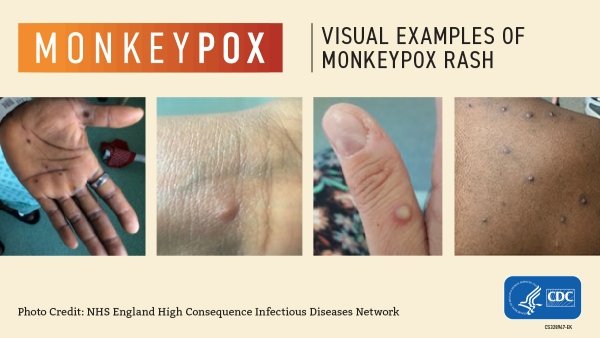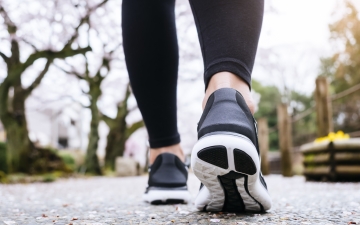Monkeypox: What is it and should you be concerned?

The federal government has declared the current monkeypox epidemic a public health emergency, this is what Vermonters need to know about the disease.
What is monkeypox?
Monkeypox is a zoonotic disease spread from animals to humans. Also known as hmPXV, MPV, and MPX, it is a cousin virus of smallpox.
The federal government has declared the current monkeypox epidemic a public health emergency, which makes it easier for states to access resources. According to the Centers for Disease Control and Prevention (CDC) U.S. Map of Cases, Vermont has the lowest case count in the Northeast. While the current risk to Vermonters is low, it is important to stay informed. Especially if you are traveling.
How does monkeypox spread?
Monkeypox is mostly spread by prolonged close skin-to-skin contact with someone who is infected.
While it is not a sexually-transmitted disease, a sexual encounter with someone who is infected is a significant risk. People can also become infected through respiratory fluids and direct contact with materials like bed linens, towels, and clothes that have touched body fluids or sores.
Like with COVID-19, it is very important to be vigilant in washing your hands.
What are the symptoms of monkeypox?
Symptoms usually start within three weeks of exposure. The most common symptom of monkeypox is a rash. The rash can look like pimples or blisters, or it could appear like chickenpox.
See examples of monkeypox rash from the CDC below.

Other symptoms include:
• Fever
• Headache
• Muscle aches
• Backaches
• Swollen lymph nodes
• Chills
• Exhaustion
• Respiratory symptoms including sore throat, nasal congestion, or cough
You may experience all or only a few symptoms.
What should I do if I think I have monkeypox?
If you have a rash and are concerned it may be monkeypox, you should isolate and then talk to your health care provider - even if you don’t think you’ve had contact with an infected person.
Because monkeypox and smallpox are genetically similar, there are antiviral drugs for treatment and vaccines to help prevent infection.
There is currently a limited supply vaccines available in Vermont, so there are eligibility requirements to get vaccinated at this time.
For more information, visit the Vermont Department of Health website.



